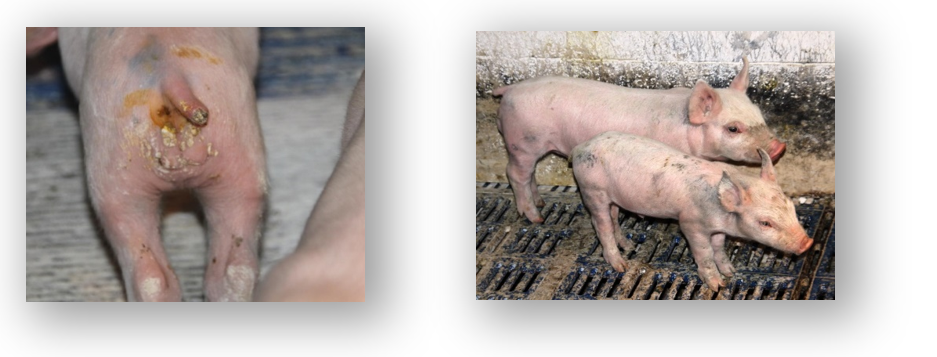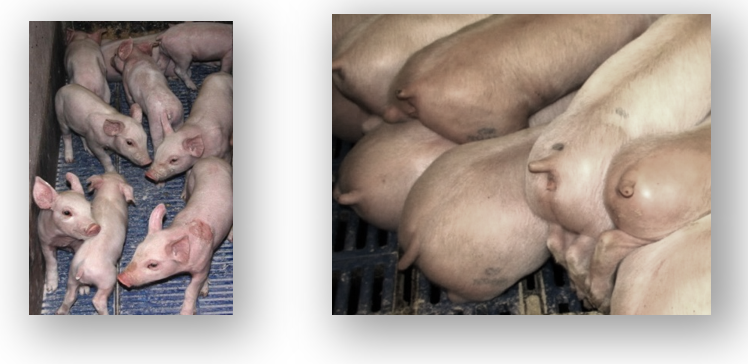Case Study: Utilizing Probiotics as a therapeutic approach for treating diarrhea in nursery piglets.
Introduction
This case study examines the implementation of a probiotic, Bacillus velezensis PB6 to address increased diarrhea issues in piglets at a commercial farm in Italy. The goal was to resolve the diarrhea issues without antibiotic use.
Background
In November, the farm observed a significant increase in diarrhea among piglets. The diarrhea appeared immediately after birth and persisted until day five, affecting entire litters. Standard antibiotics, including enrofloxacin, florfenicol, and amoxicillin, were ineffective. The farm experienced moderate mortality, loss of condition, and lack of homogeneity among piglets.
Identifying the Causes
A thorough investigation was conducted to identify potential causes of the diarrhea. Various factors were examined, including agalactia, clostridia, coccidiosis, colibacillosis, PED virus, rotavirus, and TGE virus. The presence of E.coli ETEC strain K88 was confirmed, which was found to be sensitive to most antibiotics. Clostridium difficile was absent, but Clostridium perfringens was present in moderate levels. PRRS was confirmed positive with real-time PCR.

Intervention
To address these challenges, Bacillus velezensis PB6 as water-soluble concentrate, was introduced into the sow’s liquid feed at a concentration of 75 grams per ton. The treatment began seven days before farrowing and continued throughout the lactation periods.
Results and Findings
Thirty days after the initial outbreak and fifteen days post-treatment, nearly all clinical signs of diarrhea in newborn piglets had disappeared. The incidence of diarrhea was reduced to 5% of litters, and mortality rates returned to normal levels. Additionally, uniformity among piglets was re-established.
The farmer observed and noted the effectiveness of probiotics in addressing the health issues of the piglets. This case demonstrated the potential of probiotics to significantly improve piglet health and reduce the reliance on antibiotics.

Conclusion
This case study demonstrates the effective use of Bacillus velezensis PB6 as a viable substitute for conventional antibiotic treatments in promoting piglet health. By modifying the microbiota of sows, Bacillus PB6 decreased E. coli excretion, thereby reducing the environmental challenges faced by piglets and addressing pre-weaning diarrhea issues.
Request a quote
To receive a quote we need the following information to calculate the shipping cost:

